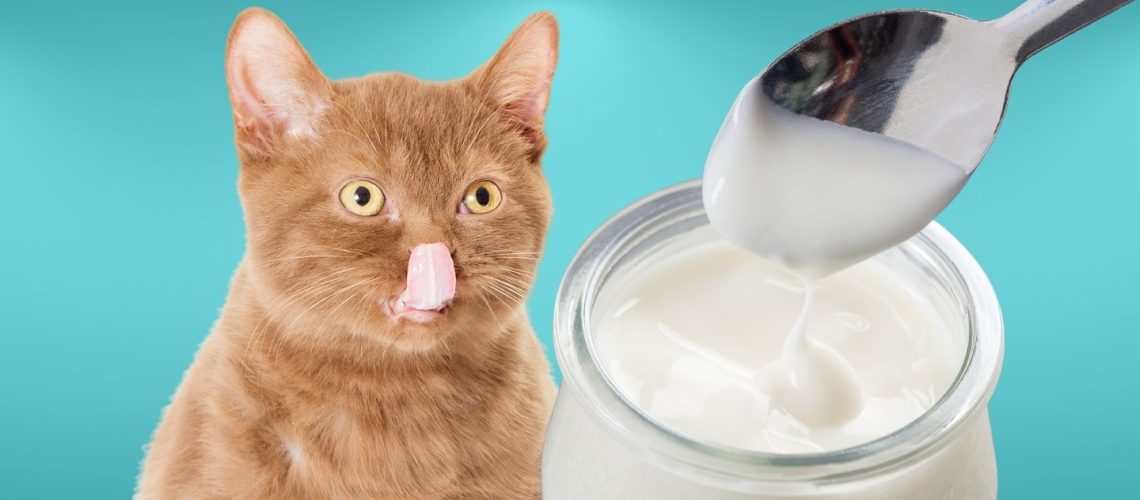Cats can eat yogurt, but it should be given to them in moderation and only as a treat. While yogurt can provide some health benefits for cats, it should not be a staple part of their diet. It is important to choose the right type of yogurt and to monitor your cat's reaction to it to ensure they do not experience any adverse effects.
Understanding Cats' Nutritional Needs
Obligate Carnivore Diet
Cats are obligate carnivores, which means they require a diet primarily made up of animal protein. They have limited ability to process lactose and carbohydrates, so dairy products like yogurt should be given sparingly.
Importance of Animal-based Proteins
Animal-based proteins are crucial for a cat's overall health and well-being. These proteins contain the essential amino acids that cats need to thrive.
Limited Ability to Process Lactose
Most cats lack the enzyme lactase, which is required to break down lactose found in dairy products. As a result, cats are lactose intolerant and may experience digestive issues if given too much yogurt or other dairy products.
Potential Health Benefits of Yogurt for Cats
Probiotics and Gut Health
Yogurt contains probiotics that can help support a healthy digestive system in cats. This can lead to improved gut health and better nutrient absorption.
Calcium and Bone Health
Yogurt is also a good source of calcium, which is essential for maintaining strong bones and teeth in cats.
Protein for Muscle Maintenance
The protein in yogurt can help maintain muscle mass in cats and support overall health.
Potential Risks and Side Effects of Feeding Yogurt to Cats
Lactose Intolerance and Digestive Issues
As mentioned earlier, most cats are lactose intolerant and may experience digestive problems if given too much yogurt. This includes diarrhea, vomiting, and gas.
Added Sugars and Artificial Sweeteners
Flavored and sweetened yogurts may contain added sugars and artificial sweeteners, which can be harmful to cats. Xylitol, a common artificial sweetener, is toxic to cats and should be avoided.
Potential for Weight Gain
Overfeeding yogurt can lead to weight gain in cats, which can contribute to obesity and related health issues.
Interference with Cat's Balanced Diet
Feeding too much yogurt can interfere with a cat's balanced diet, leading to nutritional deficiencies and other health problems.
How to Safely Introduce Yogurt to Your Cat's Diet
Starting with Small Amounts
Begin by offering your cat a small amount of plain, unsweetened yogurt, and observe their reaction. If they tolerate it well, you can gradually increase the amount over time.
Observing Your Cat's Reaction
Monitor your cat for any signs of digestive upset or allergic reactions after introducing yogurt. If any adverse effects occur, discontinue the yogurt and consult with your veterinarian.
Consulting with a Veterinarian
Always consult with your veterinarian before making any changes to your cat's diet, including introducing yogurt or any other new food items.
Alternatives to Yogurt for Cats
Lactose-free Dairy Products
Lactose-free dairy products, such as lactose-free milk or cheese, can be used as an alternative treat for your cat if they enjoy dairy.
Probiotic Supplements Specifically Designed for Cats
For cats that require probiotics for their digestive health, consider using a probiotic supplement specifically designed for cats instead of yogurt.
Other Safe Treats for Cats
There are many other safe and healthy treat options for cats, such as freeze-dried meat or fish, catnip, or store-bought cat treats.
Frequently Asked Questions
Can Kittens Eat Yogurt?
Kittens, like adult cats, can eat yogurt in moderation as long as they tolerate it well. However, kittens have specific nutritional needs, so it's essential to focus on providing a balanced diet primarily.
How Much Yogurt Can I Give My Cat?
Yogurt should only make up a small portion of your cat's diet, no more than 10% of their daily caloric intake. Start with small amounts and adjust it according to your cat's tolerance and overall health.
Are There Specific Brands of Yogurt That Are Better for Cats?
Choose a plain, unsweetened yogurt made with lactose-free milk, or containing the lactase enzyme. Organic and natural yogurt options without additives or artificial sweeteners are typically best.
Key Takeaways
Importance of Moderation and Monitoring
It is essential to give yogurt to cats in moderation and closely monitor their reaction and overall health.
Making Yogurt a Treat, Not a Dietary Staple
Yogurt should be considered an occasional treat for your cat rather than a primary food source due to their dietary needs as obligate carnivores.
Always Prioritizing Your Cat's Overall Health and Nutritional Needs
Ensure that your cat's diet primarily consists of animal-based proteins and a balanced diet, prioritizing their overall health and nutritional needs. Always consult with your veterinarian when making changes to your cat's diet.








